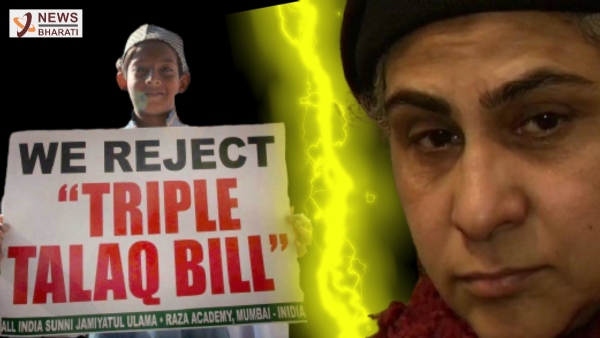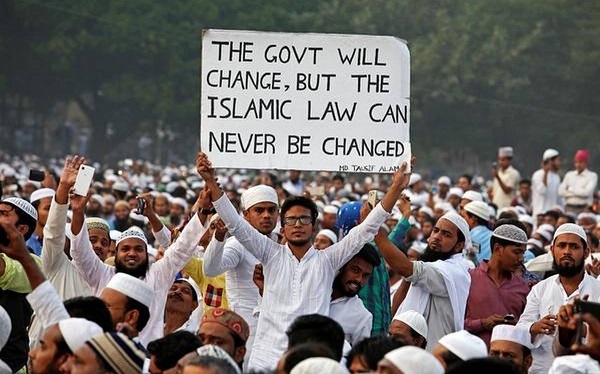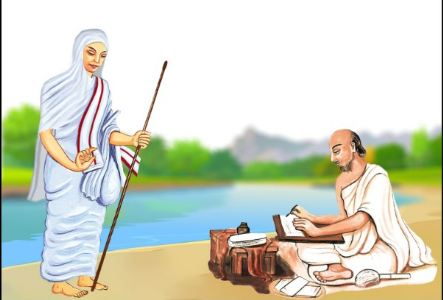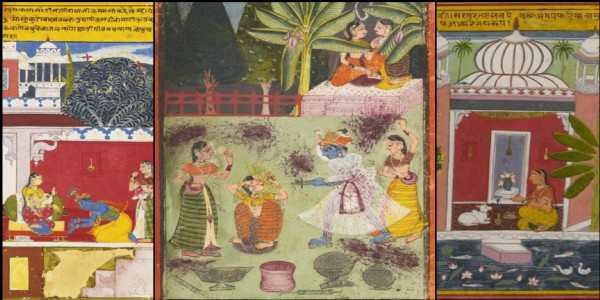'Triple Talaq' cases continue exploitation of women's freedom; Woman files petition in Delhi Court
Total Views |
New Delhi, Jan 19: A Muslim woman from Delhi has claimed that her husband had pronounced 'Triple Talaq' to separate from their 23 year old wedlock. The cause of the failure of their two decades of marriage is believed to be the woman's failure in giving birth to a son for the family and thus, the woman has approached Delhi's Saket court in order to file a petition.

Huma Hashim and her husband Danish Hashim have been married for 23 years and have a family of two daughters of 20 and 28 years of age. Over the years of their marriage, Huma complains to have come across several incidents of abuse and torture mainly for a demand to give birth to a son. Huma said, "He (Danish Hashim) always wanted a son and had forced me to undergo several abortions. One day he was hitting my daughter and when I attempted to save her I was kicked and spat upon. He then gave me triple talaq. We tried to file a complaint but police paid no heed. We sought an allowance also but he gave us nothing."
Huma Hashim claims that since Danish Hashim had been politically well connected, the police had failed to file an FIR of the complaint that was lodged after a month gave her 'triple talaq'. Huma stated that she has also approached the National Commission for Women regarding the abuse that she and her daughters had to go through.
In case of judicially inter-mediating in religious matters like that of triple talaq, it becomes critical to bring law in practice since for a secular country that India is, the union judiciary does not alter the religious laws that exist in the religious system of a particular community. However, acts like triple talaq are challenged in court based on their credibility to degrade the social structure of the Indian society and violates the principles put forth by the Indian constitution. Therefore, the Muslim Women (Protection of Rights on Marriage) Act, 2019 was passed on July 26, 2019.
The act made triple talaq illegal in India on Aug 1 2019, replacing the triple talaq ordinance promulgated in Feb 2019. It provided that instant triple talaq in any form (spoken, written, or by electronic means such as email or SMS) is illegal and void, with up to three years in jail for the husband. Under the new law, an aggrieved woman is entitled to demand maintenance for her dependent children as well.
Although, the act has barred the practice of triple talaq in the boundaries of Indian jurisdiction, it is technically legal in Sunni Islamic jurisprudence which explains the reason of prevalence of its practice even after the 2019 act being passed. According to the Sunni Islamic jurisprudence, "Sharia grants the divorce rights to husbands because Islam grants men a greater power of decision-making."

A Uniform Civil Code (UCC) continues to remain the only solution to effectively deal with such social problems in coming future. A UCC is one that would provide for one law for the entire country, applicable to all religious communities in their personal matters such as marriage, divorce, inheritance, adoption and similar other matters. Currently, Indian laws do follow a uniform code in most civil matters like that of Indian Contract Act, Civil Procedure Code, Sale of Goods Act, Transfer of Property Act, Partnership Act, Evidence Act and others. However, the constitutional loophole that acts as a barrier in this scenario is the division of subjects in the state, union and concurrent lists.
The most fundamental argument in this concern is that "If the framers of the Constitution had intended to have a Uniform Civil Code, they would have given exclusive jurisdiction to Parliament in respect of personal laws, by including this subject in the Union List." However, 'personal laws' have been mentioned in the Concurrent List. The problem of UCC is being discussed in the parliament ever since independence. Some members of the constituent assembly sought to immunize Muslim Personal Law from state regulation. In case of bringing in uniformity in personal laws, the argument that remained constant primarily tackles only the communal aspect of the problem and does not consider the 'gender' related aspect of the issue.
The participation of the representatives of the minority community in the assembly about the issue couldn't resolve the debate. Mohammed Ismail, who thrice tried unsuccessfully to get Muslim Personal Law exempted from Article 44 of the Indian constitution, said a secular state should not interfere with the personal law of people. Hussain Imam had questioned whether there could ever be uniformity of personal laws in a diverse country like India. With several parliamentary differences regarding the implementation of UCC, uniformity in the legislative as well as judicial procedure among all the citizens of the country, irrespective of their communal background or any similar constraint, still continues to be a dream for the country, which is clearly a solid solution for the problems like 'triple talaq.'
Bharati Web








